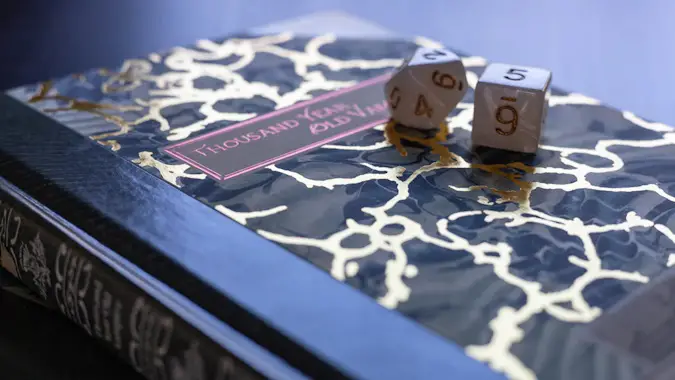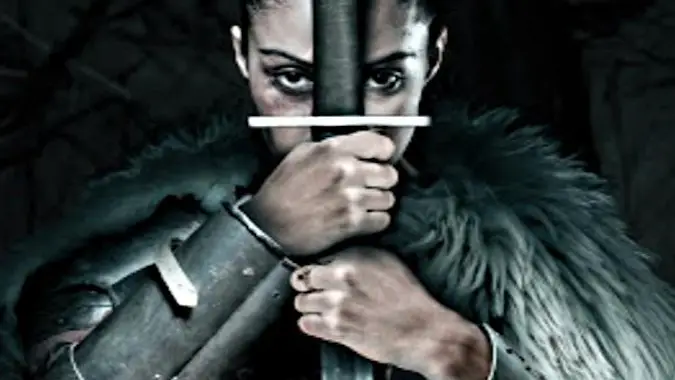Party of one: an introduction to solo tabletop RPGs

A common joke in tabletop RPG communities is that the true final boss of any campaign is scheduling. We all want to play these fun games with our friends, but trying to align the schedules of a bunch of adults to pretend to be wizards and warriors for a few hours can be tough — and make no mistake, the more people you have, the harder it gets. Sometimes you just have that urge to roleplay even when there’s no chance your group is going to be able to get together; maybe you want to just really sink into a character and become them for a while.
But what are you to do if you’re the only one around when the desire to roleplay hits? That’s where solo or one-player tabletop RPGs fit in the hobby.

What is a solo tabletop RPG?
Much like tabletop RPGs meant for groups, solo tabletop games can cover a whole spectrum of games, but the most important thing they all have in common is that they’re meant for one person to play by themselves. Frequently, the role of the unknown or the random — things that a DM or gamemaster would normally do or prep — are left to “oracles,” a general term for tables of loosely-defined results designed to be rolled randomly (so yes, you still get to use your fancy dice, most of the time). Solo games can be anything from journaling games where you’re embodying a fictional character through their journal or diary to more unique models of games where you can express yourself in ways other than writing. Some solo TTRPGs are even so fully-featured that they could even be played with multiple people if you want!

Why would I want to play a solo tabletop RPG?
Just like regular tabletop games, there are a whole host of reasons you might want to play a solo tabletop RPG. These include:
- You want to play an RPG but you can’t get a group right now. Whether that’s because of things like scheduling difficulties, being away from your usual group, anxiety keeping you from having a group to begin with, or just being between sessions, sometimes the only person available to play with is you — and solo RPGs say that’s okay!
- You want to play a game that doubles as a creative writing or thought exercise. Especially with journaling games, you might end up doing a lot of brainstorming and writing during your solo RPG play time. You could be looking for a more loosely-defined game that is more like a set of writing prompts with dice, and those games definitely are out there for you.
- You want to do some light worldbuilding or preparation for your regular game. There are some games that are explicitly designed to create some kind of artifact, like an organically-formed dungeon or delve that you can slot right into a group tabletop RPG. However, any solo game could work like this — maybe to really get into the head of your campaign’s village, you want to play a journaling-style game to really explore their background.
- You’re trying out a game for a group by learning to play it by yourself. Especially for some of the more fleshed-out solo RPGs that have multiple modes of play, this can be a way to learn the rules in a low-pressure environment, to make sure you know how to play it when it comes time to teach it to others. Sometimes just reading a game doesn’t quite stand up to hands-on experience, and if you get a rule wrong in a solo tabletop RPG, there’s no one to notice except you.
Whatever your reason, the breadth of the experiences offered by solo tabletop games ensures there’s something for you, whatever you want to do.

A few solo tabletop RPGs you might want to check out
- Ironsworn (and its sci-fi cousin, Ironsworn: Starforged) is one of the biggest names in solo tabletop games, and one of the most well-supported in terms of resources, apps, and so on. If you’ve played any kind of Powered by the Apocalypse or Forged in the Dark games, like Apocalypse World, Dungeon World, or Blades in the Dark, Ironsworn will feel pretty mechanically similar to those, but with systems in place to encourage solo play. Thematically, Ironsworn has a very “dark fantasy” feel, as you play the role of a hero, swearing iron vows to undertake perilous quests in the game’s setting of the Ironlands. Ironsworn: Starforged expands the play into outer space, entering the chaotic frontier of The Forge and living a dangerous and exciting life amongst the stars. The rules of both Ironsworn and Starforged are flexible enough to enable you to use your own settings, as well, and if you like them well enough you can also play them in co-op GM-less mode, or in a standard GM-and-players group setting. Best of all is the price: the base game of Ironsworn is free.
- Thousand Year Old Vampire is a solo tabletop RPG in which you detail the life of a vampire, from the moment they lost their mortality up until when they are inevitably destroyed. Play uses a series of semi-random prompts, and can take place within the character sheet provided in the game or go all the way to a full journaling exercise. Expect both villainous acts, moments of humanity, and surprising victories — after all, even a vampire is a complicated creature.
- plot ARMOR is a journaling solo tabletop RPG about the protagonist of a mecha anime who cannot die by any means (hence the title: they have “plot armor“) but by the end of the 32-episode series you’re about to create, they will. (The author actually notes that 24 episodes is the length for optimal play.) Chronicle your protagonist’s life in the cockpit of their giant robot, fighting in a war they probably can’t win.
- The Wretched tells the story of the last surviving member of an intergalactic salvage ship after an engine failure and a hostile alien lifeform attack. Interestingly, it’s an audio journaling game — your implements of play are a microphone, a tumbling block tower, and a deck of playing cards. It even has its own soundtrack! It’s simultaneously a story of human resilience in the face of overwhelming odds, and a story about fear and perseverance. (And if you’ve feeling extremely creative after, The Wretched even has a system reference document you can use as the mechanical base of your own solo tabletop game, the Wretched & Alone SRD).
- UMBRA, DELVE, and RISE are all games with similar purposes: at the end of the game, you’ll have produced a map that you can either keep as a fun artifact of your solo playtime, or which you can insert into another game. Want to have a fully-fleshed out tabletop game for your D&D game ready to go, but aren’t sure where to start? Here you go. UMBRA is a solo game of building and expanding a sci-fi space colony, similar to video games like Rimworld. DELVE is a solo game of dwarves creating a new hold and discovering the things that lie beneath the earth, similar to Dwarf Fortress. Lastly, RISE (which calls itself “DELVE‘s evil sister”) draws on the inspiration of games like Dungeon Keeper to create a solo mapmaking game about a villain starting over from scratch, populating their dungeon with heroes and slowly pushing to the surface to wreak havoc there.
Please consider supporting our Patreon!
Join the Discussion
Blizzard Watch is a safe space for all readers. By leaving comments on this site you agree to follow our commenting and community guidelines.




